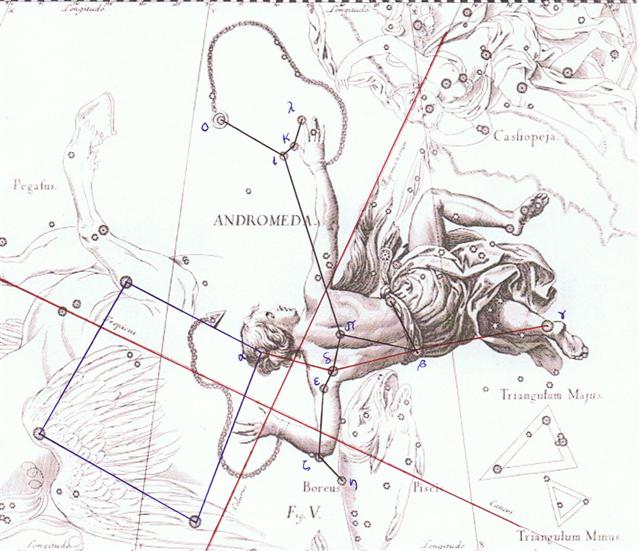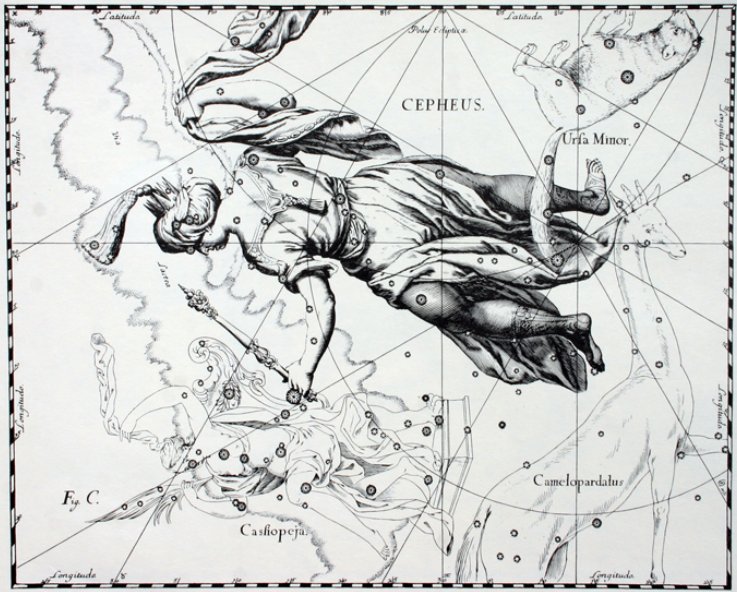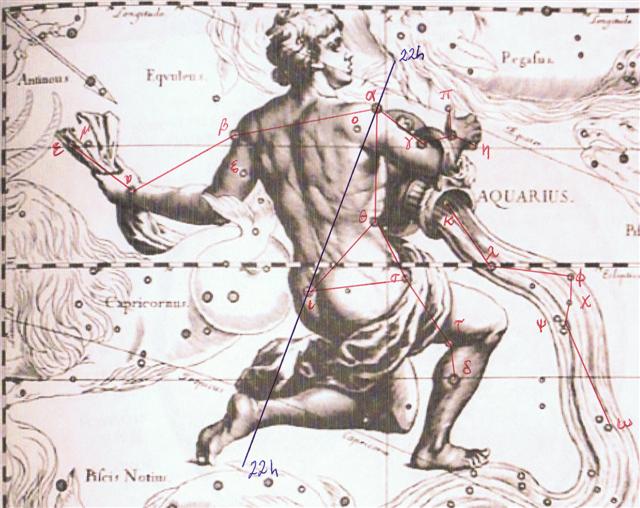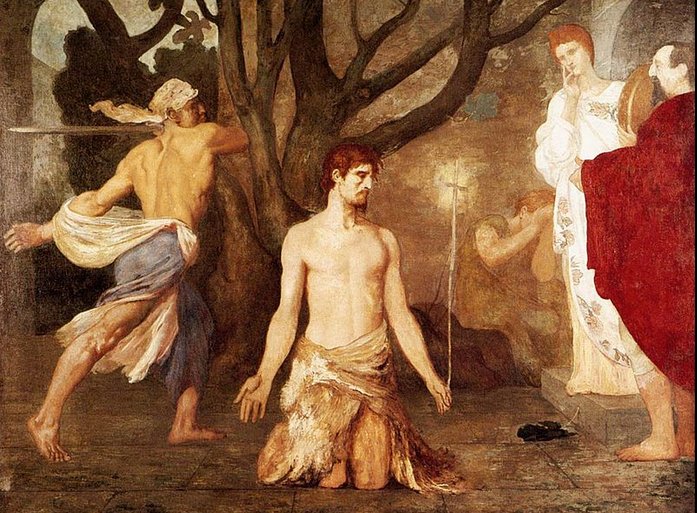Once again. In day 301 (October 28) a
little henua in front has perhaps been separated from the left forearm
above, suggesting the result of raising the sky vault by means
of a huki pillar. The red light of dawn (tona mea)
should be observed here:
... Rangitokona, prop up the heaven!
// Rangitokona, prop up the morning! // The pillar
stands in the empty space.
The thought [memea] stands in the
earth-world - // Thought stands also in the sky.
The kahi stands in the earth-world -
// Kahi stands also in the sky.
The pillar stands, the pillar - // It ever
stands, the pillar of the sky ...
 |
27 |
 |
 |
 |
154 |
|
September 28 (271) |
October
26 (299) |
27 (300
= 585 - 285) |
28 (301
= 194 + 107) |
|
Cb7-20
(164) |
Cb8-21
(584) |
Cb8-22
(193) |
Cb8-23
(301 - 107) |
| te
rau hei |
koia ia |
kua haga ia - kua
huki |
koia ra - tona
mea |
|
29 |
156 = 12
* 13 |
|
185 =
740 - 555 |
| Haga
1. Bay, fishing spot. (Figuratively)
he haga o te ŠkuŠku, it is the [evil]
spirit's fishing spot, i.e. a place where they hide
waiting for people to fall under their power. 2. To
want, to love. Ku haga Š i te vai, I want
water, I am thirsty. Vanaga.
1. Bay, strait, anchorage, strand,
beach. P Mq.: hana, haka, small bay,
creek, cove. 2. Work, labor, employment, act,
affair, creation, design, state, maker, fashion,
manufacture, occupation, profession; to do, to make,
to construct, to employ, to form, to manufacture, to
fashion, to found, to be busy with; haga rakerake,
crime; tagata haga ei mea, mercenary; haga
no iti, to plot mischief; haga ke, to act
contrary; haga takataka, to disjoin; haga
nui, difficulty, fatigue, to weary; tuhi ki
te haga, to give employment; haga hakahou,
to make over, to renew, recovery; haga koroiti,
to deal prudently; haga nuinui ke, to
overburden. P Pau.: haga, to do, action,
work, a deed. Mgv.: haga, aga, work,
labor. Mq.: hana, haka, action, act,
work, occupation. Ta.: haa, work, to labor,
to make. 3. Agreement, conduct, liking, intention,
desire, will; to resolve, to permit, to endeavor, to
tolerate, to be willing, to wish, to approve;
haga ihoiho, fixed desire; haga mai,
haga no mai, to agree, to hearken favorably;
tae haga, despite, involuntary, to refuse, to
renounce; noho hakahaga, apathy. 4. = haka.
Pau.: haga = haka. 5. Mgv.: haga,
a fish. Mq.: haka, id. 6. Mgv.: haga,
a fishtrap. Sa.: faga, a fish-trap,
bird-cage. Ma.: hanganoa, a small basket for
cooked fish. 7. Mgv.: haga, a measure of a
fathom. Ta.: aa, to measure length. Mq.:
aka, ana, to measure with the arms. Ma.:
whanga, id. Churchill.
Hagaava (haga 1 -
ava 2), entrance of a harbor. Hagahaga:
1. (haga 2), work. 2. hesitation, to
hesitate. Churchill. |
 |
 |
 |
|
inoino |
Cb8-22
(585) |
haga
rave |
... A bent branch can symbolize 'change'.
The 'curved' was according to the Pythagorean school a
'female' trait:
'Freeman
describres the dualistic cosmology of the Pythagorean
school (-5th century), embodied in a table of ten pairs
of opposites.
On one side there was the limited, the odd, the one,
the right, the male, the good, motion, light, square and
straight. On the other side there was the unlimited, the
even, the
many, the left, the female, the bad, rest, darkness,
oblong and curved.' (Joseph
Needham, Science and Civilisation in China, vol.
3.)
From this it should be clear that there is a
high probability for 'curved' to also imply 'darkness'
in the minds of the Easter Islanders. This is one reason
(among others) to interpret 'breaking the shadows' as
going from the female night to the male day ...
The night of winter was over, the bad
time of starvation was in the past (at left).
| Kino
1. Bad; kikino, very bad,
cursed; kona kino, dangerous place. 2.
blemish (on body). Kinoga, badness, evil,
wickedness; penis. Kinokino, badly made,
crude: ahu kinokino, badly made ahu, with
coarse, ill-fitting stones. Vanaga.
1. Bad, wrong. T Pau.: kiro,
bad, miserable. Mgv.: kino, to sin, to do
evil. Mq.: ino, bad, abominable,
indecent. Ta.: ino, iino, bad,
evil; kinoga (kino 1) sin; Mgv.:
kinoga, sin, vice. 2. A skin eruption,
verruga, blotched skin, cracked feet T.
Churchill. |
585 = 584 + 1 = 45 * 13.
Looking at a year ending with 'a dive
into water' (kua ruku te manu), we could expect
to find a season with 156 (= 12 * 13) 'dry male days' at left (in the past):
|
JANUARY 13 (378) |
14 |
15 (*300) |
16 |
17 |
 |
 |
 |
 |
 |
|
Ca13-16 |
Ca13-17 (360) |
Ca13-18 |
Ca13-19 |
Ca13-20 |
|
oho te vae |
tagata puoko erua |
tagata puo pouo |
vero hia |
- |
|
March 15 |
16 (*360) |
17 |
18 |
19 (78) |
|
JANUARY 18 (383) |
19 |
20 |
21 |
22 |
 |
 |
 |
 |
 |
|
*Ca14-1 (364) |
*Ca14-2 |
*Ca14-3 |
*Ca14-4 |
*Ca14-5 |
|
Kua tupu te ata i te henua |
|
March 20 (*364) |
21
(80) |
22 |
23 |
24 |
|
JANUARY 23 |
|
24
(= 85 - 61) |
25 |
26 |
27
(392) |
28
(*313) |
 |
 |
 |
 |
 |
 |
|
*Ca14-6 |
*Ca14-7 (370) |
*Ca14-8 |
*Ca14-9 |
*Ca14-10 |
*Ca14-11 |
|
kua ruku te
manu |
te kihikihi - te
hoea |
te kihikihi - o te vai - te kihikihi |
te vero |
te henua |
te heke |
|
March 25 (84) |
26
(*370) |
27
(86) |
28
(*10 - 3) |
29 |
30 |
|
π
ANDROMEDAE, M31 (*7)
ALDERAMIN
(*190) |
DELTA (*8.4)
PORRIMA (*191) |
DENEB KAITOS (*9.4)
MIMOSA |
*10
*193 (= *190 +
3) |
η
ANDROMEDAE (*11.4)
ALIOTH
|
*377
(= *12 + 365)
COR CAROLI
(*195) |
|
September 24 (267) |
25 |
26 |
27 (270 = 80 +*190) |
28 |
29 (272) |
|
JULY 25 (267 - 61) |
26
(207 = 268 - 61) |
27 |
28 |
29 |
30 |
|
180 |
JULY
28 |
29 (210) |
27 |
AUGUST 26 |
27
(239 = 300 - 61) |
28
(240) |
154 |
 |
 |
 |
 |
 |
|
September 27 (270) |
8 |
October 26 (299) |
27
(300 = 585 - 285) |
28
(301 = 194 + 107) |
|
Cb7-19 (3 * 185) |
Cb7-20 (164) |
Cb8-21 (584) |
Cb8-22 (193) |
Cb8-23 (301 - 107) |
|
vero hia |
te rau hei |
koia ia |
kua haga ia -
kua huki |
koia ra
- tona mea |
|
*193
(= *12 + 181)
η ANDROMEDAE (*11.4) |
ALIOTH
*377 (= *12 + 365) |
*222
*40 |
*223
BHARANI (*41.4) |
ZUBEN ELGENUBI
*42 |
|
Ω |
29 |
156
= 12 * 13 |
|
180
+ 1
+ 185 =
366 |
740 (total number of glyphs on the
tablet) / 2 = 370, and with glyph 370 (*Ca14-7) as the
first in a sequence measuring 185 (= 370 / 2) nights it
becomes
necessary to count also the empty glyph space at the
beginning of side a in order to have the 'diving bird'
(*Ca14-6, where 146 = 2 * 73 = 2 / 5 * 365) as the last
day in a first halfyear of 185 days. 741 = 370 + 1 +
370 = 19 * 39.
... The date to
celebrate St James (the Great) was July 25 in Western
Christianity, April 30 in Eastern Christianity, and December 30
in the Hispanic Church. On the other hand, St John (the apostle)
was celebrated in December 27 according to all these church
traditions. St George, who died in April 23 in the year 303 AD,
was celebrated in April 23 ...
If the day of St James corresponded to
JULY 25, when the Full Moon at the time of the Bull
should have
been at π ANDROMEDAE - at her right (and upper,
male)
shoulder blade where the Andromeda galaxy (M31) was
located - then it should also have been the night when
Alderamin (α Cephei, at his
right and upper shoulder) culminated.


His halfbrother St John
(»)
could then have been at the Full Moon in
DECEMBER 27 or 155 days later. JULY 25 (206) + 155 = 361
(DECEMBER 27):
|
JANUARY 23 (388) |
150 |
JUNE
23 |
ST
JOHN'S DAY |
25 (176 = 237 - 61) |
26 |
27 |
 |
 |
 |
 |
 |
 |
|
*Ca14-6 (369) |
Cb6-13 |
Cb6-14 |
Cb6-15 (130) |
Cb6-16 |
Cb6-17 (524) |
|
kua ruku te
manu |
ku hakahonui raua |
kiore |
hokohuki |
te rau hei |
|
March 25 (84) |
August 23 |
24
(236 = 4 * 59) |
25 (*157) |
26 |
27
(524 - 285) |
|
π
ANDROMEDAE, M31 (*7)
ALDERAMIN
(*190) |
Maru-sha-arkat-Sharru-15
(4th Son behind the
King) =
SHIR
= ρ Leonis
*341 |
*159
*342 |
*160
*343 |
*161
*344 |
VATHORZ POSTERIOR
SITULA (*345) |
|
Sept 24 (267) |
February 22 (53) |
Terminalia (54) |
24
(420 - 365) |
25 |
26
(*342) |
|
JULY 25 (267 - 61) |
DECEMBER 23 |
CHRISTMAS EVE |
(359 = 420 - 61) |
26
(*280) |
27
(361) |
|
ST
JAMES,
« |
154 |
ST
JOHN,
» |
 |
 |
 |
 |
|
Cb6-18 |
Cb6-19 (526) |
Cb6-20 |
Cb6-21 (136) |
|
te moko e te hokohuki |
kua tupu te mea ke |
|
February 27 |
28
(424) |
March 1 (60) |
2 |
|
DECEMBER 28 |
29
(424 - 61) |
30
(364) |
31 |
From the day when Alderamin culminated at
midnight in JULY 25 to the day when the Sun reached
the waters from Situla (κ in
Aquarius) there were 155 (= 5 * 31) days.

And from the day of St John the Baptist (JUNE
24) to the day of St John the brother of St James
(DECEMBER 27) there were 361 - 175 = 186 = 6 * 31 days.

|
13 |
Rishu A. |
Head
of the Lion |
ε
(Ras Elaset Australis)
Leonis |
146.6 |
Aug
14 (226) |
|
14 |
Sharru |
King |
α
(Regulus)
Leonis |
152.7 |
Aug
20 (232) |
|
15 |
Maru-sha-arkat-Sharru |
4th
Son behind the King |
ρ
(Shir)
Leonis |
158.9 |
Aug
26 (238) |
|
16 |
Zibbat A. |
Tail
of the Lion |
β
(Denebola)
Leonis
|
178.3 |
Sept
15 (258) |
|
17 |
Shēpu-arkū sha-A |
Hind
Leg of the Lion |
β
(Alaraph)
Virginis |
178.6 |
Sept
15 (258) |
|
18 |
Shur-mahrū-shirū |
Front or West Shur (?) |
γ
(Porrima)
Virginis |
191.5 |
Sept
28 (271) |
| |
|
19 |
Sa-Sha-Shirū |
Virgin's Girdle |
α
(Spica)
Virginis |
202.7 |
Oct
9 (282) |
Evidently we can count not only with 29 days
ahead from the diving bird but alternatively with 156 days
ahead:
|
JAN 23 (388) |
150 |
JUNE
23 |
ST
JOHN'S DAY |
25 |
26 |
27 |
28 |
 |
 |
 |
 |
 |
 |
 |
|
*Ca14-6 (369) |
Cb6-13 |
Cb6-14 |
Cb6-15 (130) |
Cb6-16 |
Cb6-17 (524) |
Cb6-18 |
|
kua ruku te
manu |
ku hakahonui raua |
kiore |
hokohuki |
te rau hei |
te moko e te hokohuki |
|
March 25 (84) |
August 23 |
24
(236 = 4 * 59) |
25 (*157) |
26 |
27
(524 - 285) |
28 |
|
π
ANDROMEDAE, M31 (*7)
ALDERAMIN
(*190) |
Maru-sha-arkat-Sharru-15
(4th Son behind the
King) =
SHIR
= ρ Leonis
*341 |
*159
*342 |
*160
*343 |
*161
*344 |
VATHORZ POSTERIOR
SITULA |
*163
*345 |
|
Sept 24 (267) |
February 22 (53) |
Terminalia (54) |
24
(420 - 365) |
25 |
26
(*342) |
27 |
|
JULY 25 (206) |
DECEMBER 23 |
X-MAS EVE |
(359 = 420 - 61) |
26
(*280) |
ST
JOHN,
» |
28 |
|
ST
JAMES,
« |
156
= 12 * 13 = 6 * 26 |
 |
 |
 |
|
Cb6-19 (526) |
Cb6-20 |
Cb6-21 (136) |
|
kua tupu te
mea ke |
|
February 28 (424) |
March 1 (60) |
2 |
|
DECEMBER 29 |
30
(364) |
31 |
|















